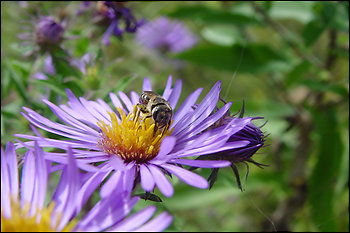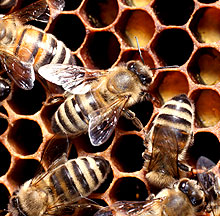Beekeepers are pointing the finger at a Bayer CropScience pesticide marketed under the name Poncho, but government tests aren’t conclusive

In Germany’s bucolic Baden-Württemburg region, there is a curious silence this week. All up and down the Rhine river, farm fields usually buzzing with bees are quiet. Beginning late last week, helpless beekeepers could only watch as their hives were hit by an unprecedented die-off. Many say one of Germany’s biggest chemical companies is to blame.
In some parts of the region, hundreds of bees per hive have been dying each day. “It’s an absolute bee emergency,” Manfred Hederer, president of the German Professional Beekeeper’s Association, told SPIEGEL ONLINE. “Fifty to 60 percent of the bees have died on average, and some beekeepers have lost all their hives.”
The crisis hit its peak last weekend. Beekeepers from Germany’s Baden-Württemburg reported hives full of thousands of dead bees. The worst-hit region, according to state officials, was along the upper Rhine river between the towns of Rastatt and Lorrach. The Rhine valley is one of Germany’s prime agricultural regions.
Regional officials spent the week testing bees, pollen, honey and plant materials to look for the die-off’s causes. The Julius Kühn Institute in Braunschweig, a federal research institute dealing with agricultural issues, set up a special hotline for beekeepers to send in dead bees for analysis.



